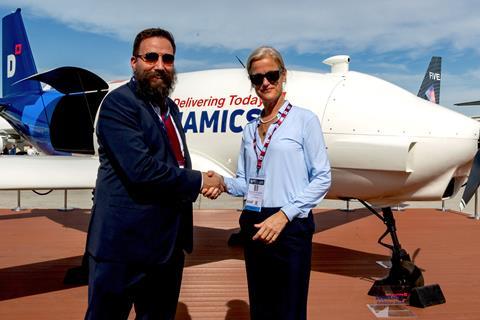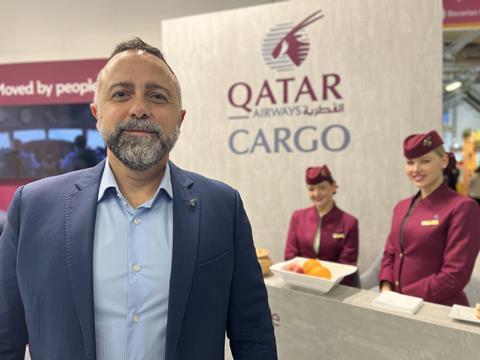As Qatar Airways Cargo’s Miguel Rodriguez underlines the importance of fresh fruit, vegetables and flowers to its business, a more technologically advanced future appears on the company’s radar

The world’s largest cargo airline, Qatar Airways Cargo, says it sees fresh produce as an increasingly important part of its overall perishables business, as it looks to grow and expand through investment in new facilities, reefer equipment, and even drones.
Miguel Rodriguez, head of cargo products at Qatar Airways Cargo, told Fruitnet the opening of a new, 12,000m2 import facility in Doha had opened the door to further growth for its refrigerated airfreight services.
“This has allowed us to increase our capacity for transit,” he notes. “So we can cater now for more transit cargo for perishables.”
In other parts of the world, the company uses third-party ground handling agents like Swissport, Menzies, or Worldwide Flight Services to handle freight on the ground.
But in the extreme heat of the Qatari capital, its sister company Qatar Aviation Services (QAS) handles all movements of fresh fruit, veg and flowers from aircraft to warehouse, and vice-versa. It also continues to invest in a dedicated fleet of reefer trucks.
All of which offers a definite advantage, Rodriguez believes. “The climate forces us to have the best solutions in place, from infrastructure to equipment, to staff that are trained and qualified to handle the different types of special products.”
Qatar Airways Cargo is especially proud of its multiple IATA CEIV certifications, which Rodriguez points out are the result of rigorous audit programmes that check everything from start to finish in terms of processes, quality management, training, infrastructure, and so on. “That is testimony to the commitment of Qatar Airways to quality,” he comments.
With those facilities and credentials in place, and with a relatively large footprint in perishable distribution around the globe, Qatar Airways Cargo looks well placed to grow its share of the fresh produce trade in the next few years.

For fruit and vegetables, much of its business comes out of South America and Africa into Europe. “We are talking about products from pineapples to mangoes to avocados, this kind of commodity,” Rodriguez explains. “Also berries, of course. We are very big on berries to Europe and the Middle East as well.”
But in order to land that new business, it must face some tricky headwinds. “We have a good problem, which is that we are quite consistently full in our network,” he admits. “So our main challenge is to have more capacity into certain destinations like the ultra-long hauls, by which I mean US, Australia or South America lanes.”
All air cargo operators depend on bilateral agreements between their own country and others when it comes to the frequency of their flights. “So our biggest challenge to support our customers better is sometimes the lack of capacity,” Rodriguez continues.
“Sometimes, we need to reshuffle the network and add additional flights, or we need to do charters. So we have a quite dynamic network. And we work very closely with our network planning team, together with our passenger network planning team.”
And with pilot-free drone flights closer to becoming a reality for at least some of Qatar Airways Cargo’s freight services, one day the sky may well be the only limit to its planned airfreight expansion.



